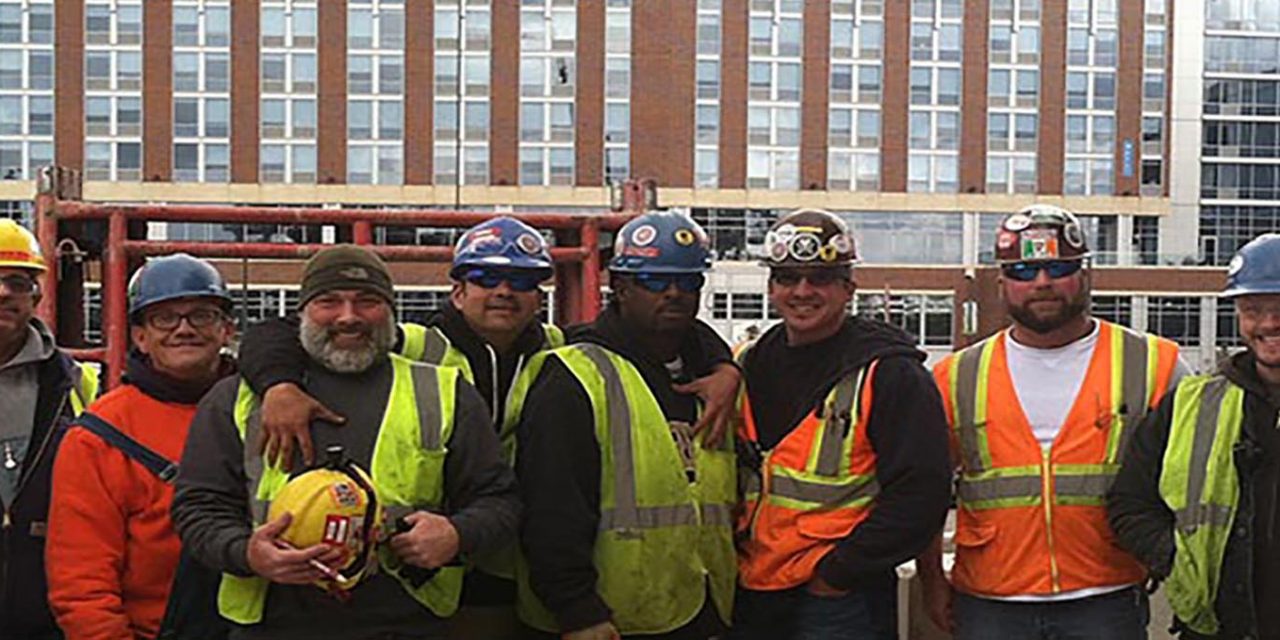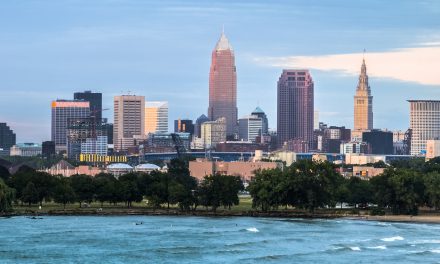Data shows shrinking wages, sluggish job growth, and no savings on school construction projects.
January 29, 2017 – (Chicago) The 2015 repeal of Indiana’s prevailing wage law (known as the Common Construction Wage) has failed to produce any taxpayer savings on school construction projects and has had a negative effect on wages, job growth, productivity and other economic and industry indicators, according to new research by the Midwest Economic Policy Institute (MEPI) and Colorado State University-Pueblo Economics Professor Kevin Duncan.
Read the Study, The Effects of Repealing Common Construction Wage in Indiana, Here.
Read an Executive Summary of the Report Here.
Prevailing wage functions as a local minimum wage for skilled construction work on publicly-funded projects like schools, transportation systems and government facilities. While construction wages and benefits only represent about 23% of total project costs, they also help fund most skilled trade apprenticeship programs, ensuring a stable supply of well-trained workers for the industry.
“The early data from Indiana is unambiguous, and confirms what most peer-reviewed economists have been saying for decades,” said study coauthor Kevin Duncan. “Repeal of prevailing wage laws does not save taxpayer dollars, but it shrinks middle-class paychecks, hurts the economy, and causes problems ranging from lower productivity to higher turnover for the construction industry.”
To conduct its study, researchers analyzed publicly available datasets from the U.S. Departments of Labor and Commerce and the U.S. Census Bureau to compare Indiana’s post-repeal economic and industry outcomes with three neighboring Midwestern states– Illinois, Ohio and Michigan– that have not repealed their prevailing wage laws. They also analyzed over 900 bid results on 335 school construction projects in Indiana’s fourteen northern counties between 2013 and 2017 to assess the impact of repeal on construction costs, bid competition, and the union share of the public works construction market.
Overall, the study highlights ten specific impacts of repealing Indiana’s prevailing wage law.
- Wages: 8.5% drop in wages for blue-collar construction workers.
- Income Inequality: 15.1% drop in wages for the lowest-paid construction workers.
- Skills: 4.5% increase in construction workers without a high school diploma or equivalent.
- Veterans: 1.2% drop in employment of military veterans in the construction sector.
- Productivity: 5.3% slower than neighboring Midwestern states with prevailing wage laws.
- Turnover: 1.2% more worker turnover in Indiana’s heavy and highway construction sector.
- Job Growth: 1.5% slower job growth in public works than neighboring Midwest states.
- Bid Competition: No significant effect.
- Union Share: No significant effect on union share of the public construction market.
- Costs: No statistical impact on the average cost per public school project in northern Indiana.
“What is especially important about this study is that it will help policymakers separate rhetoric from reality on prevailing wage, and empower voters to hold them accountable,” added study coauthor and MEPI Policy Director Frank Manzo IV.
One Indiana policymaker who is unlikely to be surprised by the early results of the state’s Common Construction Wage is Assistant GOP House Floor Leader Ed Soliday. Soliday bucked his party in voting against repeal in 2015, and recently told an audience that “it hasn’t saved us a penny.”
“Middle class wage cuts were never good politics, but this report underscores the more important fact that they are not good policy either,” Rep. Soliday said. “I hope my colleagues in other states will learn from our experience and avoid making the same mistake.”
In addition to lower wages, sluggish job growth and no project savings, prior peer-reviewed studies have also shown a host of additional impacts that come with weakening or repealing prevailing wage laws: including less local hiring, higher poverty, and lower economic output.
Last year Manzo released an analysis showing that between 2012 and 2015– a period when Indiana first started weakening its prevailing wage law– not only did construction wages fall, but more than 700 public works jobs in its fourteen southernmost counties fled across the border to Kentucky where wage standards were lower.
“When government erodes local market standards like prevailing wage, it gives workers from outside the market a competitive edge,” Manzo added. “It’s important to acknowledge that when someone says they want to repeal prevailing wage, they are actually talking about shipping jobs and tax dollars out of state.”
While no state legislature had repealed a prevailing wage statute since 1988, Indiana was the first of five states (Indiana, West Virginia, Kentucky, Wisconsin and Arkansas) that have repealed their state-level prevailing wage laws since 2015. Repeal of prevailing wage is also currently under consideration in Michigan, despite opposition to the proposal from Republican Governor Rick Snyder. Several other Midwestern states, including Michigan and Missouri, are actively floating similar proposals.
The Midwest Economic Policy Institute (MEPI) is a nonprofit organization which uses advanced statistics, reliable surveying techniques and the latest forecasting models to develop timely and dynamic analysis of policy issues affecting the economies of the Midwest.



